‘The fairest Cape we ever saw’ said a sailor aboard the sixteenth-century ship Golden Hind when seeing Cape Town. Almost 450 years later, I have to agree. It’s a city which promises a lot – and delivers. That’s why as a South Africa expert I have no issue with immediately recommending it.
Cape Town has everything. The beauty of its natural location really cannot be overstated. Table Mountain rises up from one side and the rolling waves of the Atlantic from the other. As South Africa’s first city, it’s intrinsically tied to South Africa’s history, containing important sites and some of the country’s best museums.
Then there’s the weather. It’s fine enough to ensure there’s almost always an excuse for getting outside, whether for a beach day or hiking. My pick on the 25 best things to do in Cape Town are therefore as eclectic as they are memorable. Miss them at your peril.
1. Table Mountain
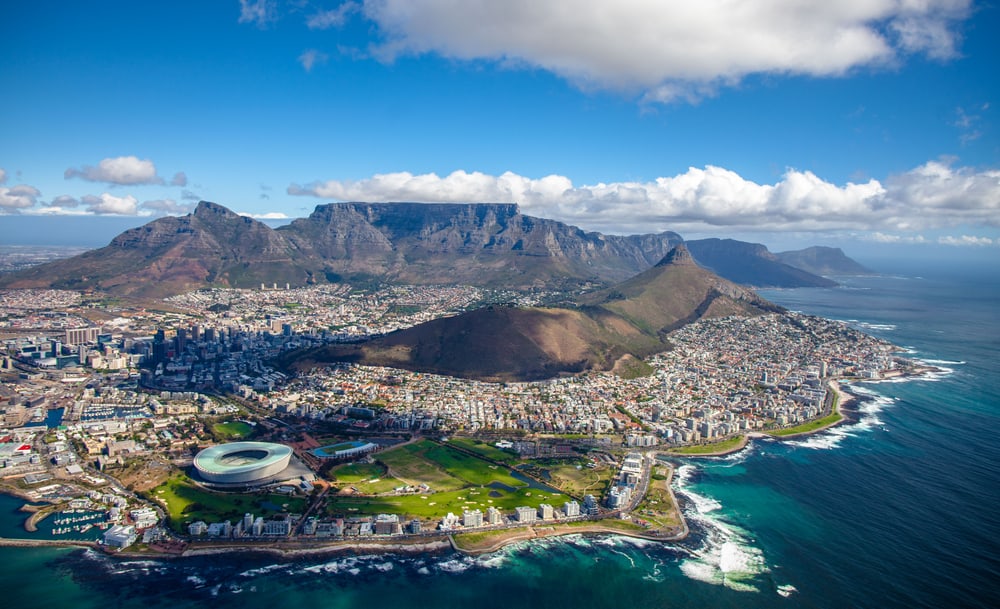 Source: Marjoli Pentz / shutterstock
Source: Marjoli Pentz / shutterstockTable Mountain is more than an impressive backdrop to Cape Town. Enclosed within South Africa’s most visited national park, its slopes are draped in indigenous fynbos flora including stunning proteas. Among these flowers skuttle lizards and cute-as-can-be dassies (hyrax). Large numbers of birds of prey keep watch while using the thermals to rise up the mountain’s flanks.
A favorite of hikers and trekkers, even the easiest route to the summit, following Platteklip Gorge, is a strenuous assault on the legs. But have no fear. The Table Mountain Cableway lifts visitors to the mountain’s famed flat summit effortlessly. The 1,000 meter peak tops out at Maclear’s Beacon, where viewpoints provide endless panoramas of the city below. Exploring fully can easily take over an hour. I suggest to take a sweater, it does get chilly at the top!
2. Robben Island
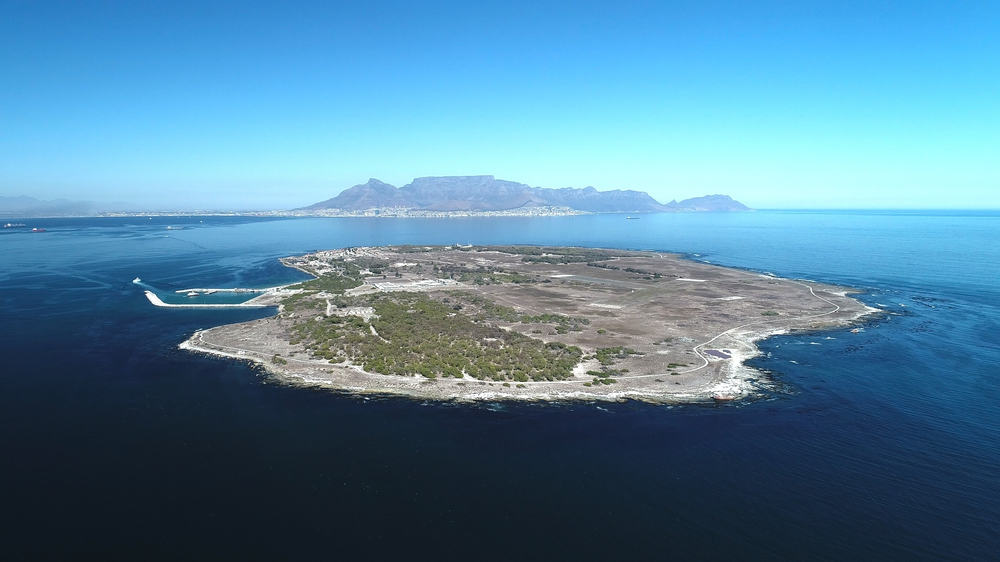 Source: Robert Wedderburn / shutterstock
Source: Robert Wedderburn / shutterstockVisible as a small oval from Table Mountain, Robben Island became the obvious place for authorities over centuries to exile their most troublesome prisoners. From 1964 until 1982, this included Nobel Peace Prize winner and future South African president Nelson Mandela. Incarcerated for treason against South Africa’s apartheid state, the island then became a tourist attraction in the 1990s.
Tours are often led by other former political prisons. They include a stop at Mandela’s cell and the quarry where he was forced to break rocks by hand. There’s no more visceral way of understanding South Africa’s modern political history, than a visit to Robben Island (A must-visit in my opinion).
3. Company’s Garden
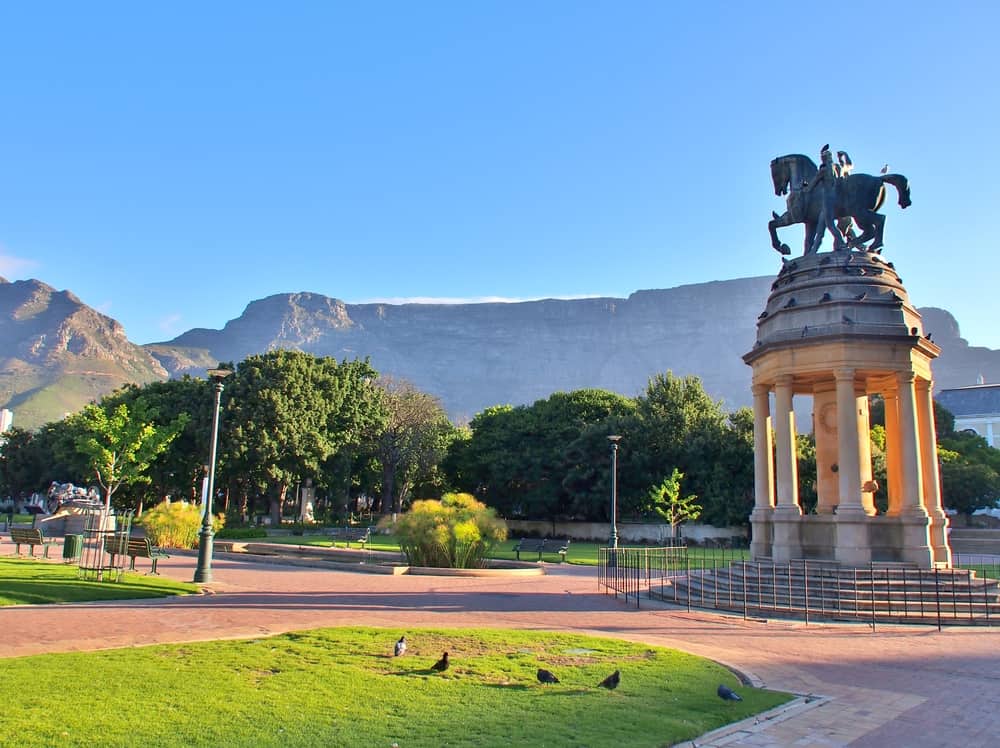 Source: MrNovel / shutterstock
Source: MrNovel / shutterstockCutting its way through a swath of central Cape Town, the Company’s Garden is named after the Dutch East India Company. This was the organization which first founded Cape Town. It planted the garden to supply its ships with fresh fruit and vegetables. Laid out some time in the 1650s, it’s South Africa’s oldest dedicated garden. One of its pear trees was planted in 1652.
The garden is also a beautiful space in which to relax to the sound of birds and trickling water. There are plenty of shady benches to choose between after checking out monuments including the increasingly controversial bronze of Cecil John Rhodes.
4. Victoria & Alfred Waterfront
 Source: Daniel Case / Wikimedia | CC BY-SA 3.0
Source: Daniel Case / Wikimedia | CC BY-SA 3.0One of Cape Town’s newest attractions, the Victoria & Alfred Waterfront saw boat-building basins turned into a thriving dining and shopping district. A mix of modern indoor mall and open-air shopping made out of historic dock structures, it has a vacation feel year-round.
The Cape Wheel provides the opportunity to take it all in, although simply sitting with a view of Table Mountain is hard to resist. Nearby, a small number of impressively-stinky Cape fur seals bask on the sunbaked paving before taking dips in the harbor.
5. South African National Gallery
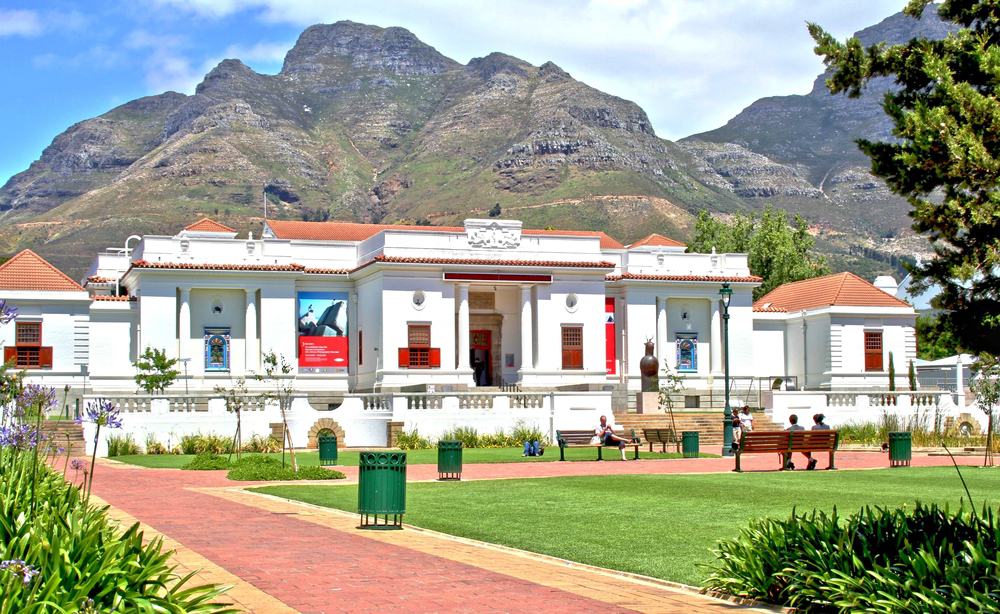 Source: HiltonT / shutterstock
Source: HiltonT / shutterstockOriginally founded in 1872, the South African National Gallery’s current home dates back to 1930. It contains a permanent collection which therefore emphasizes European culture, with artworks predominantly from Britain, France, and the Netherlands. In recent years the gallery has used its temporary exhibitions to highlight contemporary works, creating a fascinating mishmash of styles.
Artists contained within the collection include Abraham van Beerstraten and Thomas Baines, known for his drawings of colonial South Africa. Among its sculpture is The Butcher Boys, created by highly-respected South African artist Jane Alexander.
6. Castle of Good Hope
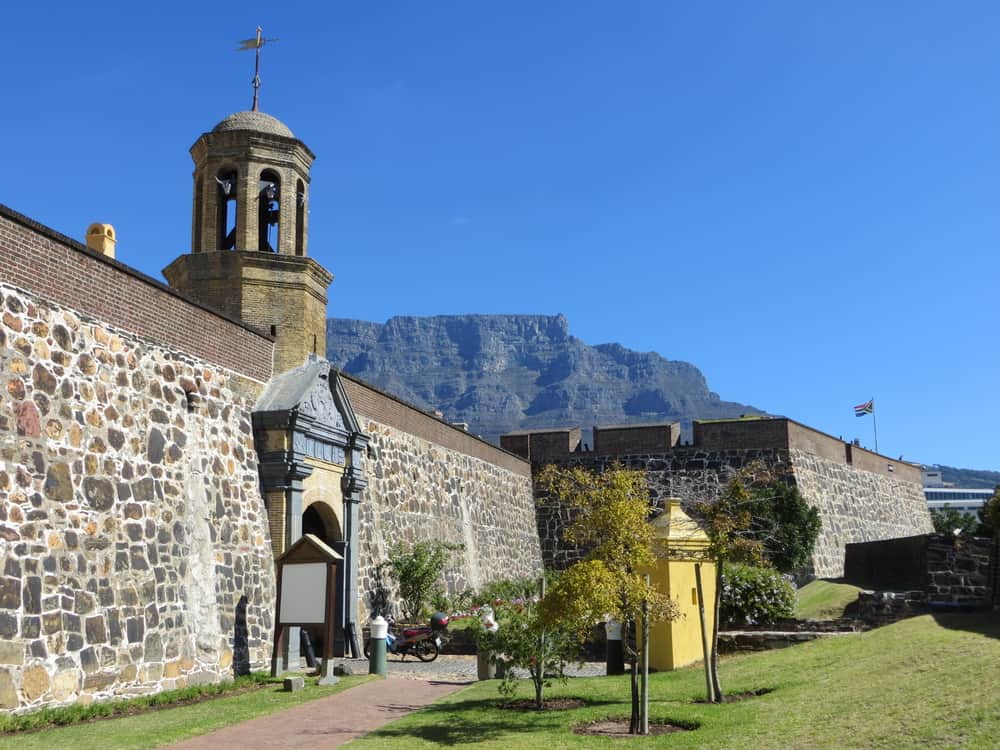 Source: Irmelamela / shutterstock
Source: Irmelamela / shutterstockOnce situated on the edge of Table Bay, today the Castle of Good Hope lies slightly marooned beside the main train and bus station. Even so, the seventeenth-century fortification provides an unmissable part of any Cape Town itinerary.
The oldest colonial structure in South Africa, the castle was built by the Dutch East India Company. It’s generally labelled the best fort of its kind anywhere in the world. Forming a star-shape of bastions, and boasting some impressive architecture, it comes complete with its original moat. Attractions inside the complex of buildings include a torture chamber, slave quarters, and a military museum.
7. Green Point
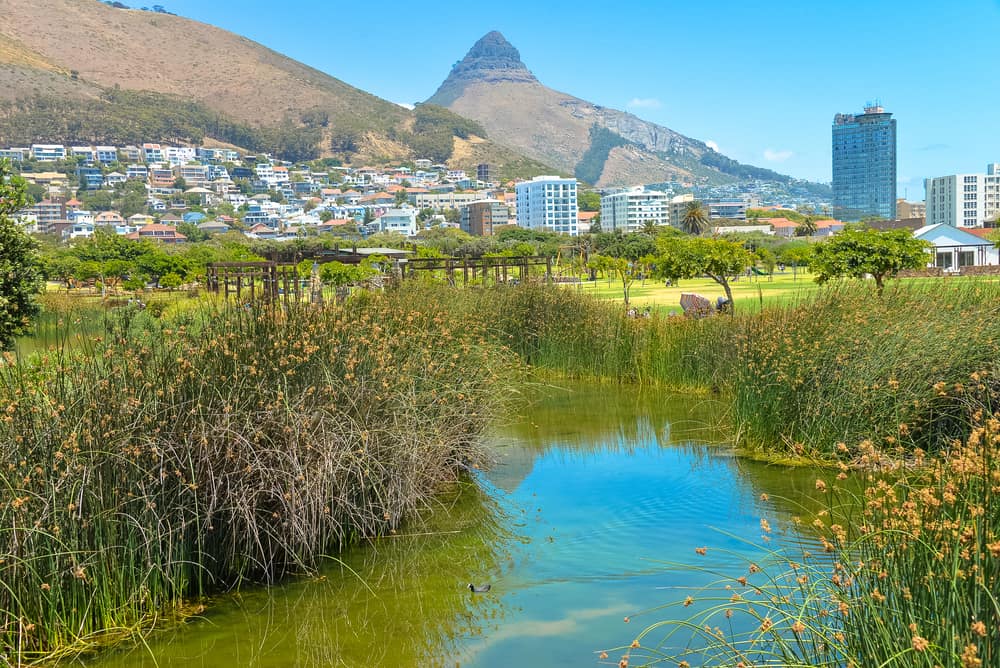 Source: MG Africa / shutterstock
Source: MG Africa / shutterstockOne of several upmarket neighborhoods lining the coast, Green Point has been called the Soho of Cape Town thanks to its nightlife. By day, Capetonians tend to head to Green Point Park. It contains various walking and jogging trails alongside a maze and a biodiversity garden. The square red-and-white striped lighthouse makes for an attractive photo op, as does the nearby Mandela’s Glasses art installation.
Come evening, the attention turns to Main Street. Here you’ll find a multitude of laid-back dining options, such as burger joints, Cuban, and Italian cuisine. For seafood, I would consider Sea Point Promenade instead.
8. Long Street
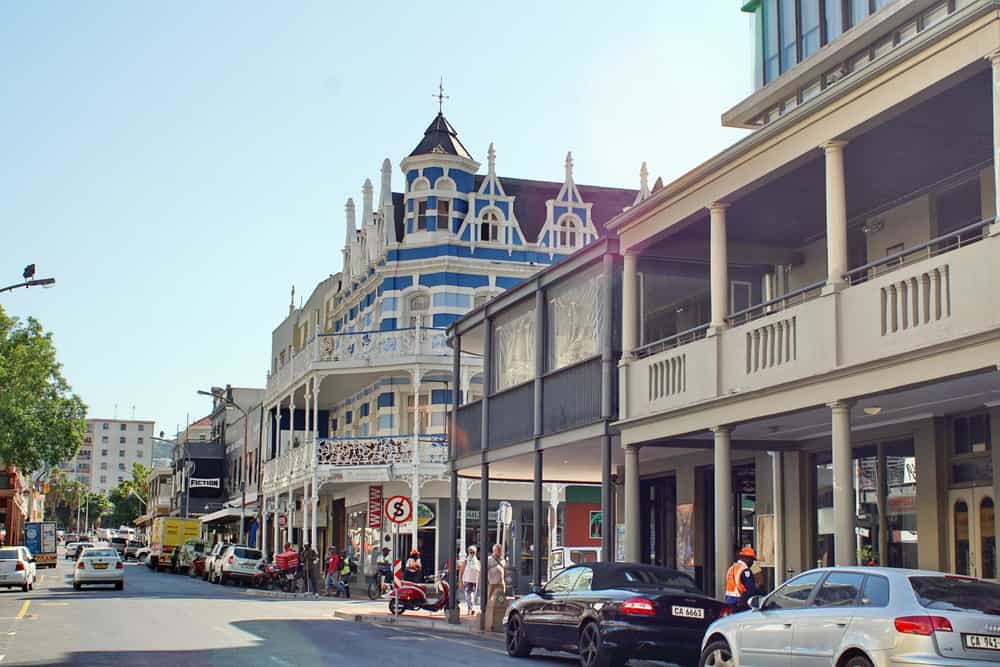 Source: Angela N Perryman / shutterstock
Source: Angela N Perryman / shutterstockLong Street stretches all the way from the harbor-front Convention Center to the lower slopes of Table Mountain. Along the way it’s adorned by a great selection of independent cafes, book shops, and antique stores.
Maintaining its feel of a Victorian throughfare as a result of the elegant ironwork balconies which line many of its buildings, the street evolves again come evening. At this time of day, it’s the many restaurants, bars, and clubs which take to the fore. Needless to say, the fun continues long into the night…
9. Bo-Kaap
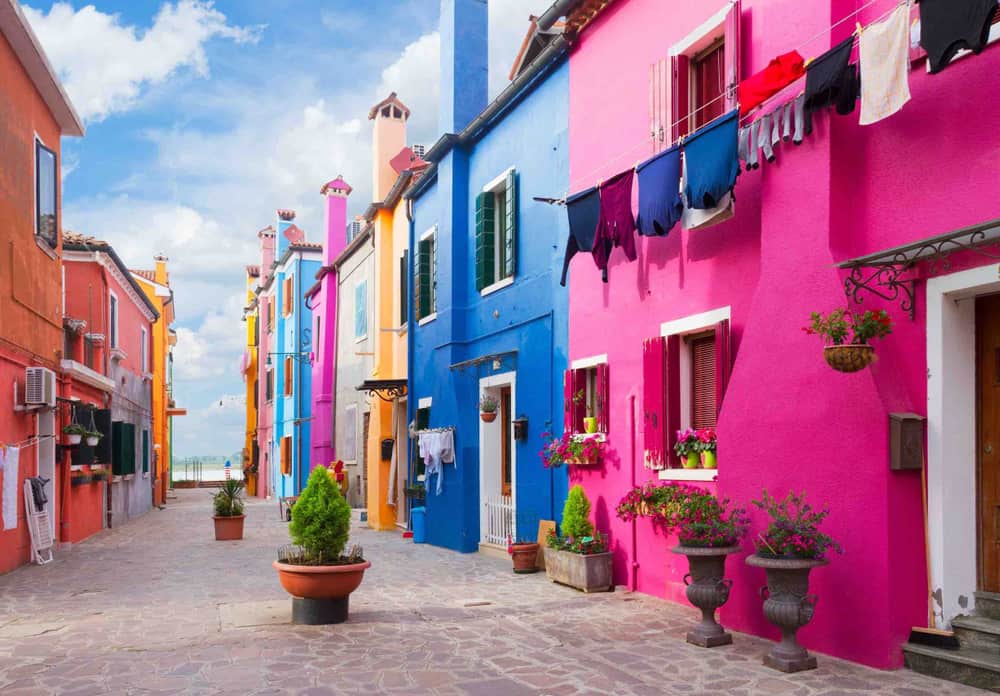 Source: Janice pama / shutterstock
Source: Janice pama / shutterstockColorful Bo-Kaap is probably Cape Town’s most distinctive of neighborhoods. Located at the base of Signal Hill, it’s just five minutes from the heart of Cape Town. Bo-Kaap gets its distinctiveness from the southeast Asian immigrants who settled in the area in the 1760s. A blend of Cape Dutch and Georgian architecture, the neighborhood’s structures took on their bold coloration as a celebration of freedom from slavery.
Wale Street contains the district’s oldest building, now containing the Bo-Kaap Museum. However, in my view the best way to enjoy Bo-Kaap is to walk its cobbled streets. Coincide it with the sound of the muezzins in the local mosques, and the atmosphere only builds further.
10. Zeitz MOCAA
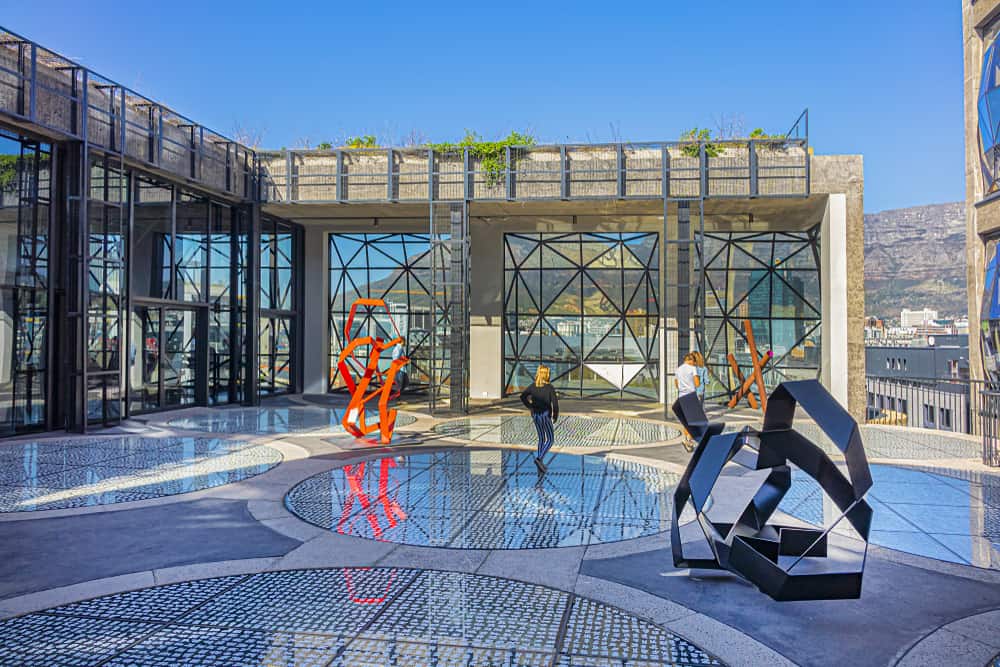 Source: Kiev.Victor / shutterstock
Source: Kiev.Victor / shutterstockOne of the newest additions to the Cape Town skyline is the Zeitz Museum of Contemporary Art Africa. Unveiled to the world in 2017, the nine-floor converted grain silo became the largest gallery to African contemporary art anywhere in the world.
Bolstered by an impressive series of rotating temporary exhibitions and fine permanent exhibits, visitors can be sure of plenty to absorb. From all the colors of the rainbow, to seriously thought-provoking new additions, top off your trip to Zeitz MOCAA with the elevator ride to the rooftop restaurant.
11. Kirstenbosch Botanical Gardens
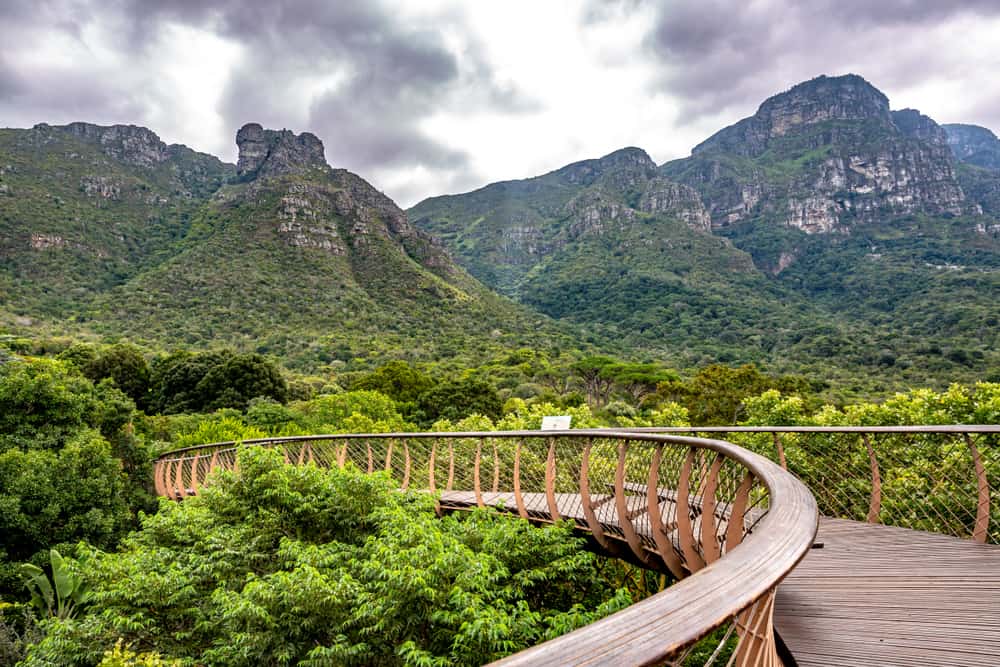 Source: Finn stock / shutterstock
Source: Finn stock / shutterstockKirstenbosch Botanical Gardens are not only important as a place for preserving South Africa’s unique plant species, but also as a playground within Cape Town’s city limits. Situated on the eastern slopes of Table Mountain, the gardens are as close as you can get to what the region looked like before the arrival of European colonizers.
Formerly created in only 1913, Kirstenbosch is nonetheless rich in history. Attractions include part of a wild almond hedge planted by South Africa’s first colonizer, Jan van Riebeeck. More modern editions to the garden include the Boomslang canopy walkway. Named after the deadly South African snake, it winds its way through Kirstenbosch’s arboretum. Stretching for 130 meters, it provides intimate views of the gardens, alongside Cape Flats township and the mountains.
12. Two Oceans Aquarium
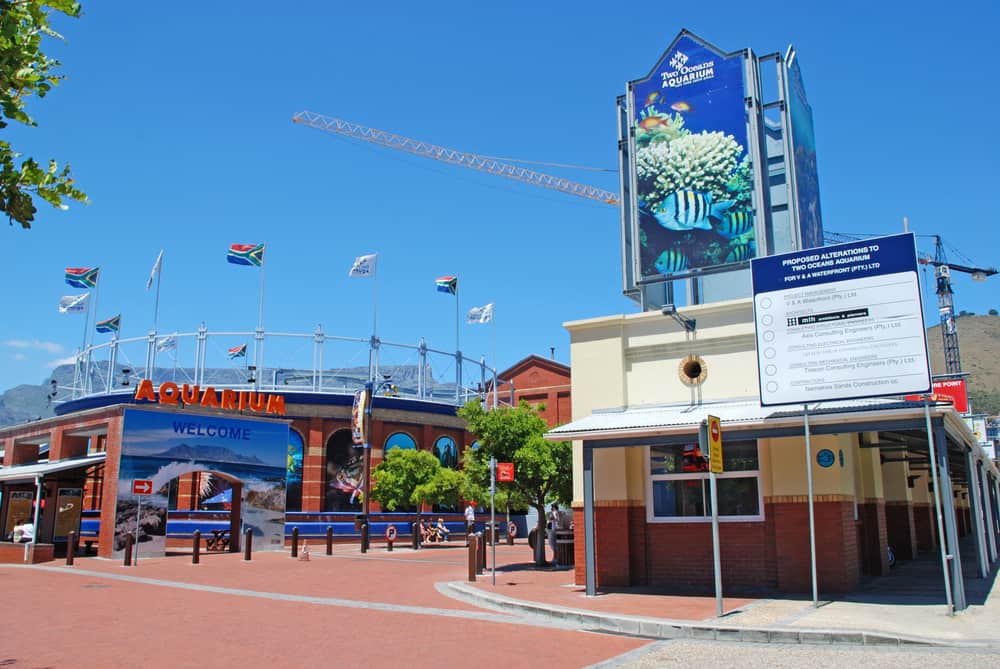 Source: InnaFelker / shutterstock
Source: InnaFelker / shutterstockPart of the Victoria & Alfred Waterfront, the Two Oceans Aquarium is named for the fact the Atlantic and Indian Oceans meet just a short distance from Cape Town. Despite this, it contains sea creatures from right around the globe. The Diversity Gallery highlights the role of South Africa’s Benguela and Agulhas currents through species including seahorses, moray eels, and clownfish.
Meanwhile, a walk-through tunnel contains 1.6 million liters of seawater home to rays and turtles among other species. The Shark Exhibit celebrates critically endangered ragged-tooth sharks. However, the biggest display is the Kelp Forest Exhibit. Showcasing the natural habitats of a huge range of creatures, rockhopper penguins use it for daily exercise.
13. Boulders Beach
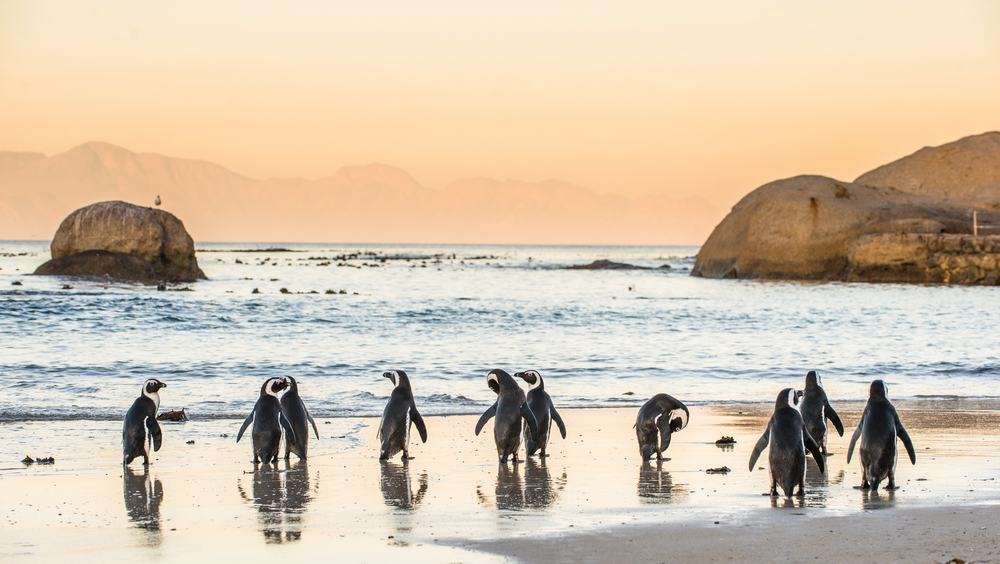 Source: Sergey Uryadnikov / shutterstock
Source: Sergey Uryadnikov / shutterstockTo observe Africa’s only mainland dwelling penguins, you only have to go as far as Boulders Beach. Situated near Simon’s Town in suburban Cape Town, the beach unexpectedly became a home for African penguins in 1982.
Since then, the small colony has continued to grow to around 3000 individual birds. Wooden boardwalks have been built for visitors to see these noisy animals. Sounding like donkeys, their other name is the jackass penguin.
If you’re interested in a guided tour I’d suggest this one that included Table Mountain, Cape Point and Boulders Beach.
14. Iziko South African Museum
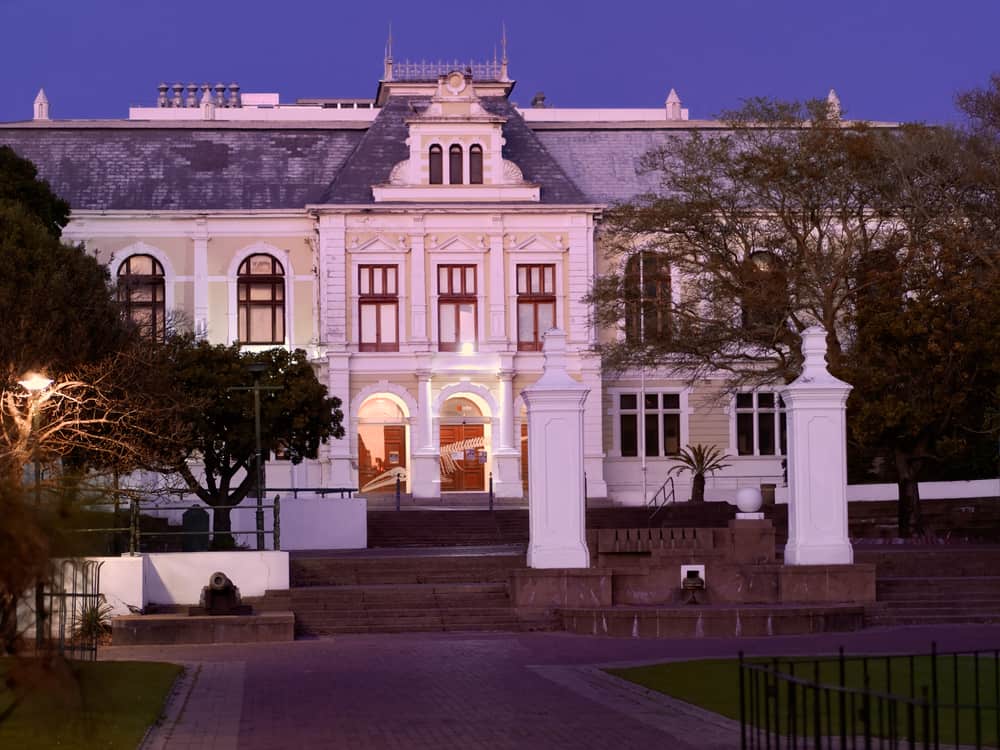 Source: Jean van der Meulen / shutterstock
Source: Jean van der Meulen / shutterstockHoused in an elegant building on the edge of Company’s Garden, the Iziko South African Museum has collections ranging from zoology to archeology. Spanning four floors, exhibits include the world-renowned Lydenburg Heads, some of the oldest Iron Age artworks found in South Africa.
The natural world plays a key part in the museum, with separate galleries displaying whales, birds, sharks, and mammal taxonomies. Heading to level 3, you can explore the bones of a 250 million year old reptile discovered in the country’s arid Karoo region.
15. Muizenberg Beach
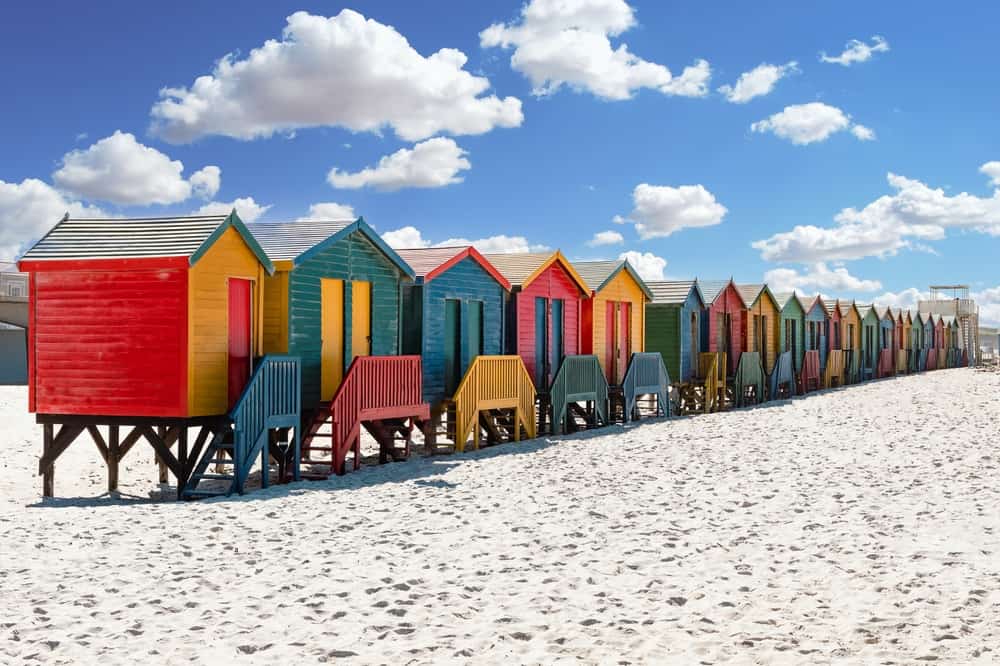 Source: AndreSwanepoel / shutterstock
Source: AndreSwanepoel / shutterstockKnown for its highly-photographed row of beach huts painted in primary colors, Muizenberg is one of Cape Town’s most popular beaches. Located in the suburb of the same name, the beach has a Blue Flag for cleanliness and plenty of soft sand despite the crowds.
Watched over by lifeguards during the swimming season, Muizenberg is also the birthplace of surfing in South Africa. This makes it a great place to jump on to a board for the first time. Waves rarely get large enough to trouble first-timers.
With fun for all the family, Muizenberg Beach makes for a good break from the cultural attractions of central Cape Town.
16. Bree Street
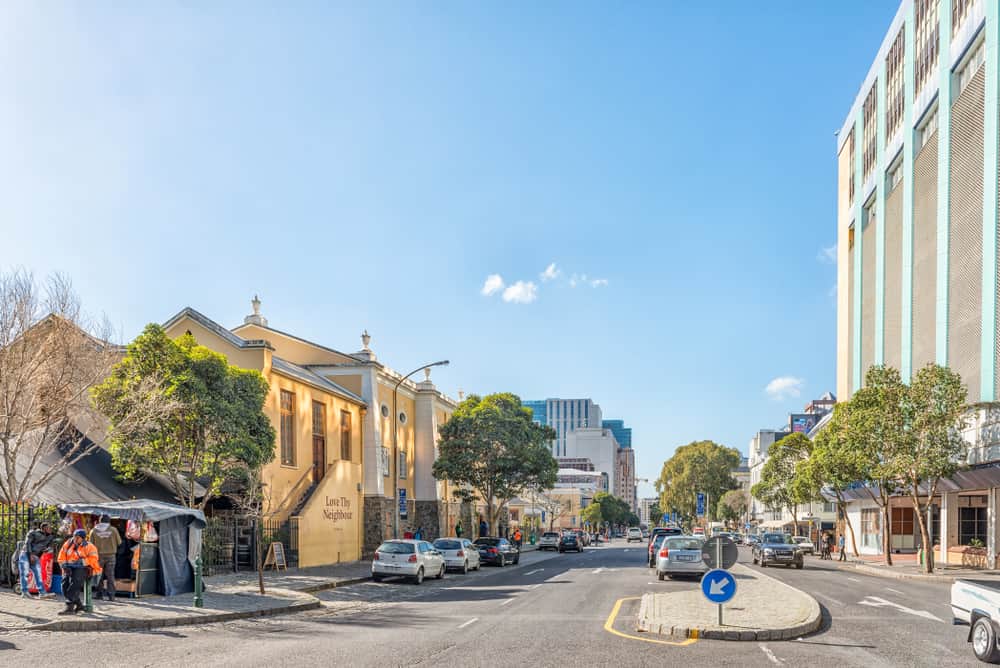 Source: Grobler du Preez / shutterstock
Source: Grobler du Preez / shutterstockHailed by the likes of Vogue, Bree Street has certainly come a long way from its humble origins. Perhaps Cape Town’s trendiest address, it gets its name from the Dutch for broad. It was made deliberately wide so ox carts had a chance to turn around.
These days it’s street art, including some incredible full-building murals, you have to look out for rather than animal dung. A place to hang when you’re after a relaxing afternoon, there are no shortage of cafes and bars.
All are small enough that you’ll never feel lost in the crowd. Add to that a number of chic homegrown artisan products – from fabrics to pottery – and you’ve got those lazy hours well taken care of.
17. Signal Hill
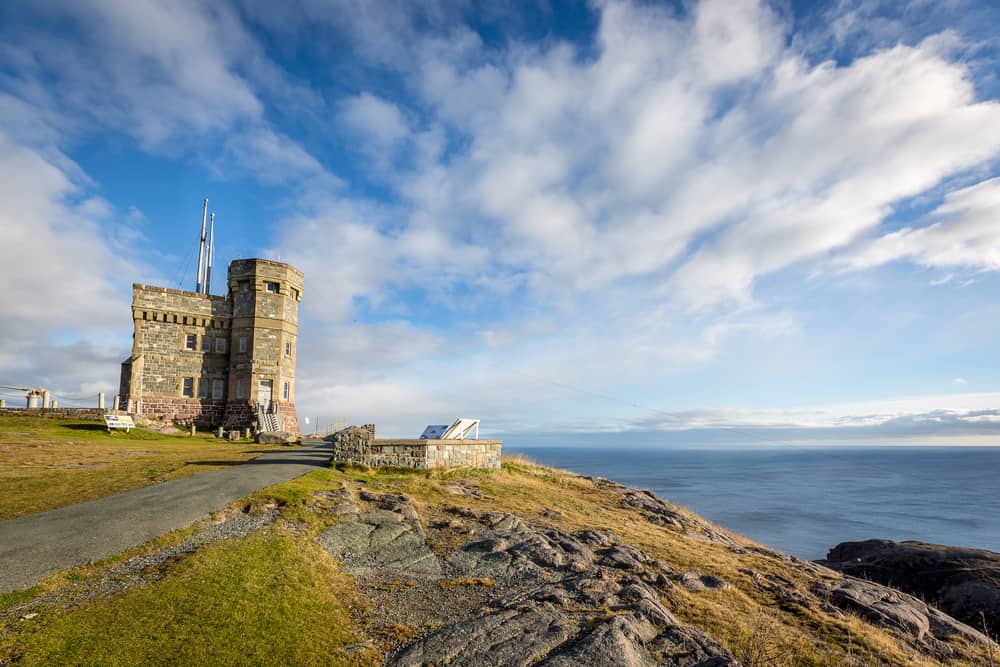 Source: CookiesForDevo / shutterstock
Source: CookiesForDevo / shutterstockStanding to one side of Table Mountain, Signal Hill is the site of the noon gun which fires most days at midday. The guns themselves date to 1794, making them the world’s oldest guns in routine use. Maintained by the South African Navy, the 18-pound guns fire every day except Sundays and public holidays.
The hill also makes for a great alternative to hiking Table Mountain. There’s also a car park close to the summit for anyone who doesn’t want to walk. At the top, visitors will find a handful of street food vendors, alongside places to rent mats to watch the sunset.
18. Saint George’s Cathedral
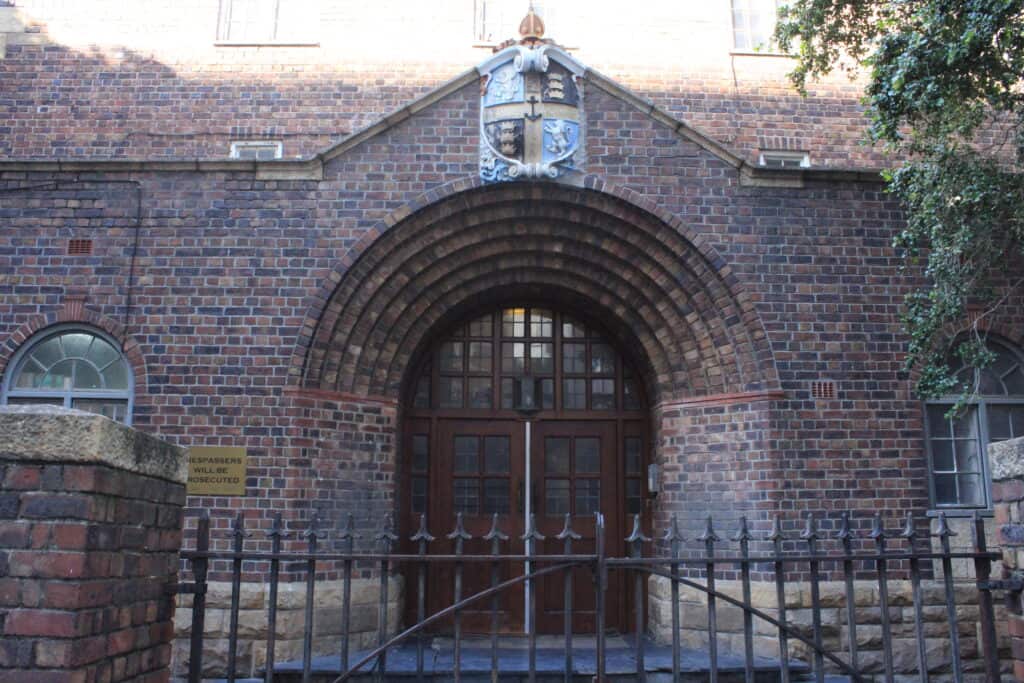 Source: Sami Mlouhi / Wikimedia | CC BY-SA 4.0
Source: Sami Mlouhi / Wikimedia | CC BY-SA 4.0The first Saint George’s Cathedral opened to congregations in 1834. But Saint George’s is not only a historic place of worship for Cape Town’s Anglican communities. It played an intriguing role in the anti-apartheid movement too.
Its replacement was designed by important British architect Herbert Baker in the early 1900s. Construction is yet to be completed. In spite of this, it has already entered the history books after cathedral authorities ignored apartheid segregation laws and welcomed everyone to worship.
Led by Archbishop Demond Tutu, winner of the Nobel Peace Prize in 1984, the cathedral also witnessed 30,000 people protest apartheid in 1989. It would end just five years later.
19. District Six Museum
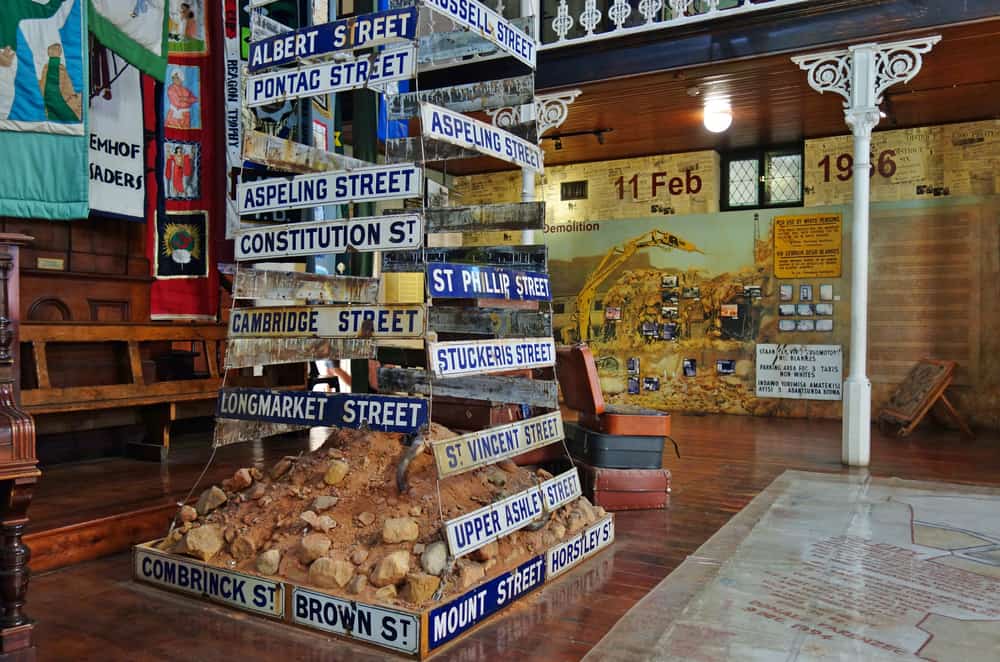 Source: EQRoy / shutterstock
Source: EQRoy / shutterstockAnother link to South Africa’s past of racial discrimination, the District Six Museum tells the tale of a single Cape Town neighborhood. Once multiracial, the apartheid authorities forced the rehousing of 60,000 non-white residents.
Dominating its central space is a map pinpointing the homes of specific residents. Many of these homes were demolished during ‘regeneration’ schemes which have left much of the area desolate to this day.
What’s unique about this museum is its focus on individuals. This makes it an important part of any Cape Town tour, even for people who have already uncovered some of the city’s apartheid past.
20. Chapman’s Peak Drive
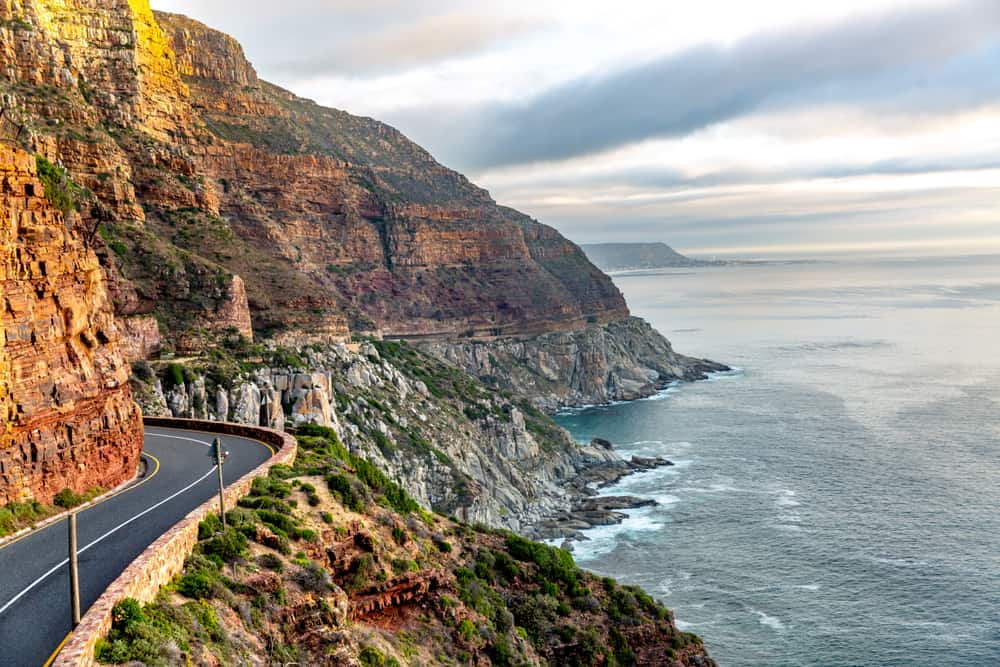 Source: Finn stock / shutterstock
Source: Finn stock / shutterstockChapman’s Peak Drive is a short but epic coastal drive which has also become popular with cyclists. Connecting Noordhoek with Hout Bay, it promises sheer drops, alluring vistas over the Atlantic Ocean, and an impressive array of engineering structures to protect the road from falling rocks.
Count carefully, and you’ll discover Chapman’s Peak Drive has no less than 114 curves. It means you’re never looking at the same view for more than a few seconds. Add to this the fact the drive leads southwards towards Cape Point Nature Reserve, and you’ve got the makings of a perfect day out.
21. Llandudno Beach
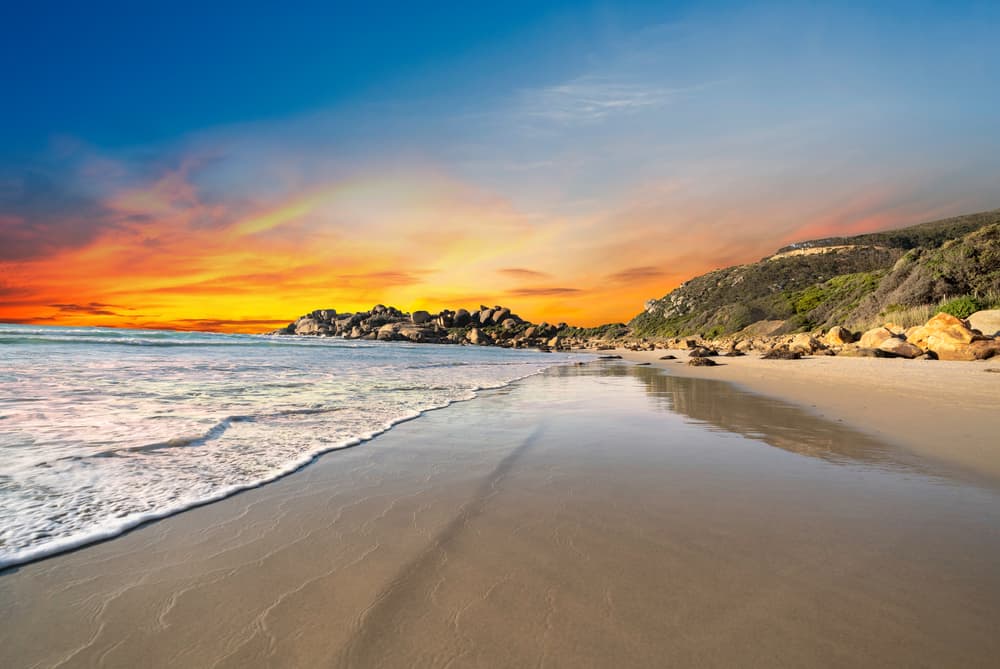 Source: Arnold.Petersen / shutterstock
Source: Arnold.Petersen / shutterstockIt’s not as famous as Clifton Beach, but that’s exactly why I’ve chosen Llandudno Beach for anyone looking for peace and tranquility. Tucked into a small arching bay, the beach comprises a delightful expanse of rich golden sand.
Being on Cape Town’s Atlantic coast, the waters can be cold. But there are still plenty of reasons to visit, from sunbathing to sand castle building. Llandudno Beach has also developed a reputation for romance, making it popular with couples come sunset.
The boulders on the lefthand side of the beach have become known as Sunset Rocks.
22. Old Biscuit Mill
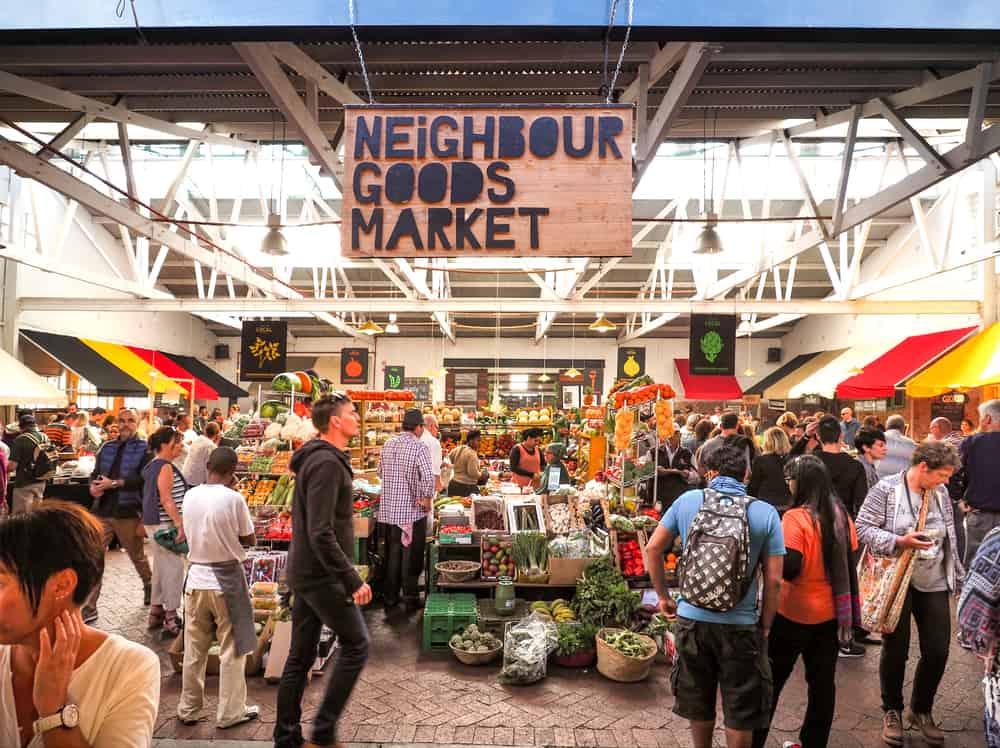 Source: Moobatto / shutterstock
Source: Moobatto / shutterstockConstructed in the late 1800s, the Old Biscuit Mill has been turned from a factory space to a cool hangout in the Woodstock neighborhood. Its series of old buildings have become home to a range of artisan producers. This is alongside office space for designers, and a choice of restaurants. Farm stores are on hand to offer up the best of local produce from Cape Town’s farmland, in addition to sweet and savory treats that need no cooking time.
The Old Biscuit Mill plays host to markets both during the day and at night. One of the most popular with locals is the ‘Neighborgoods Market.’ This family-friendly event is a heaven for anyone with a love for the gourmet.
23. Mitchell’s Plain Township
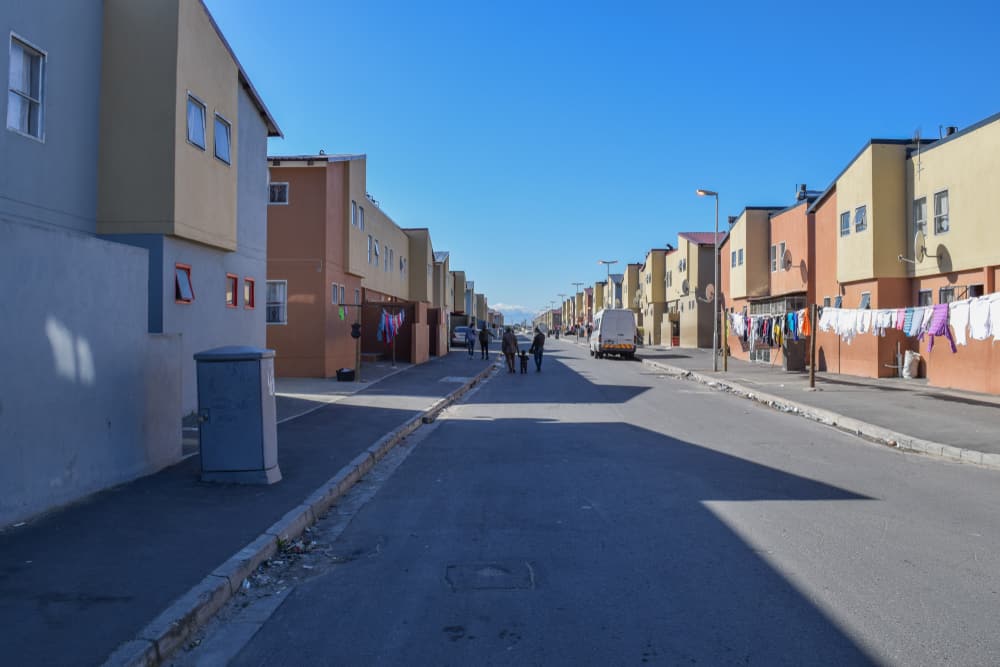 Source: Authentic travel / shutterstock
Source: Authentic travel / shutterstockThe term ‘township’ refers to the settlements created by the apartheid regime to house South Africa’s non-white population. Although democracy has existed in the country since 1994, most of Cape Town’s non-white residents continue to live in townships. These include Mitchell’s Plain. In fact, many residents from District Six were forcibly relocated here.
Found on False Bay, around 20 kilometers from downtown Cape Town, tourism is being used as a way to improve the area. Visit on a well-run official tour, and you’ll see the reality of life for the majority of South Africans.
24. Groote Schuur
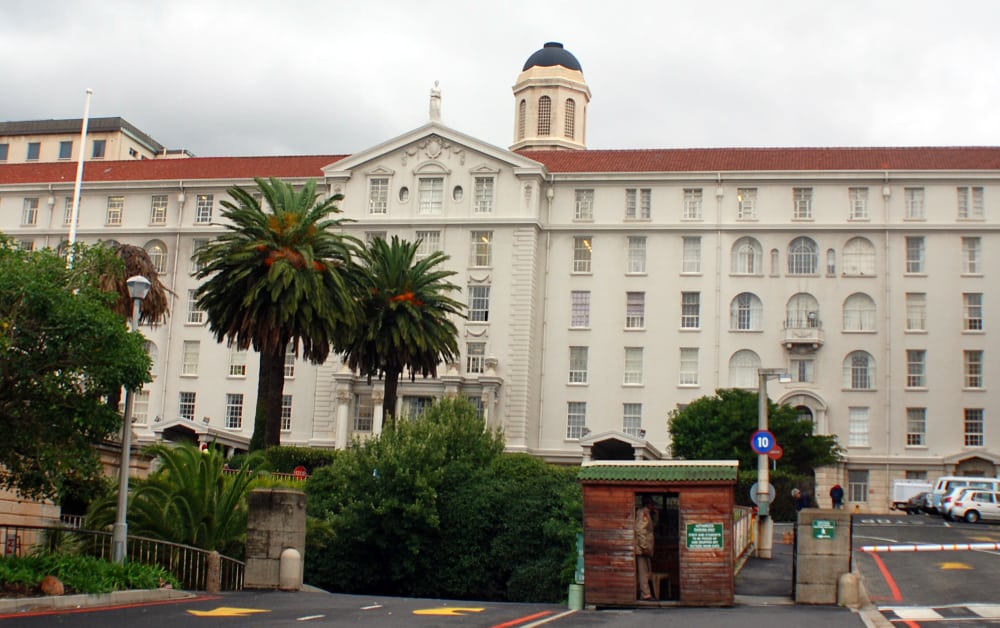 Source: meunierd / shutterstock
Source: meunierd / shutterstockTranslating from the Dutch for ‘big shed,’ Groote Schuur was first used as a farm in the 1650s. Passing through a number of hands over the centuries the Cape Dutch style building was bought in 1893 by Cecil Rhodes. He paid £60,000 for the property, a huge amount at the time.
The home of South African prime ministers and then presidents for almost a hundred years, it was also the site of an important meeting between FW de Klerk and Nelson Mandela. A museum open by appointment, visitors are able to admire the furnishings and books which remain, as well as learning more about its position in the history of South Africa.
25. Wine tasting
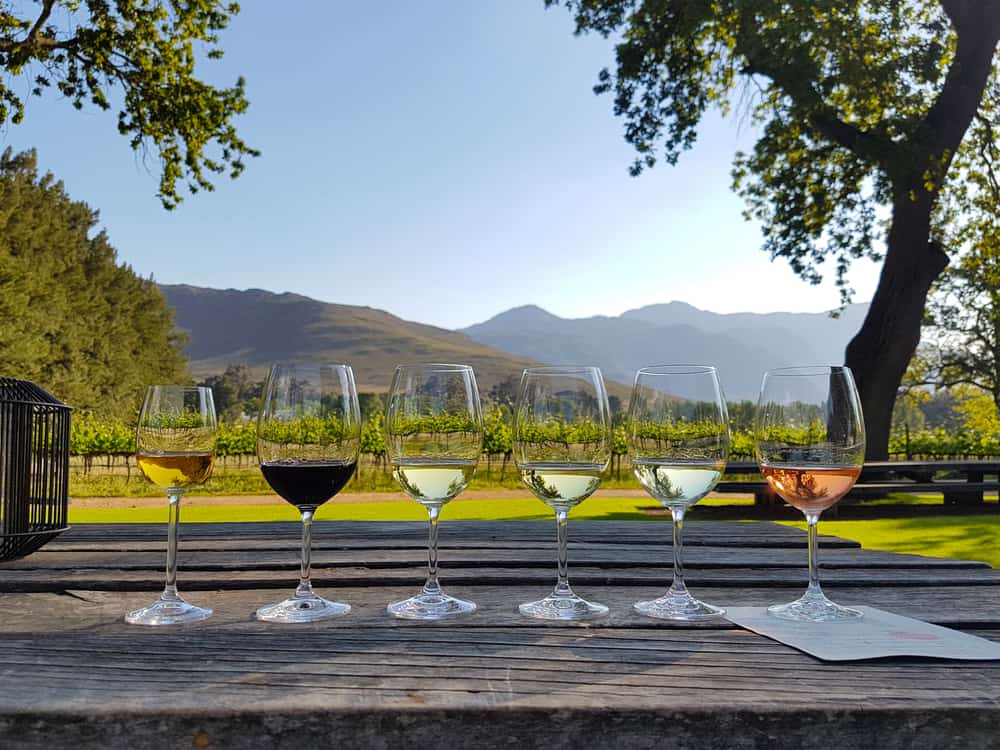 Source: Luiz Antonio Nasser Jr / shutterstock
Source: Luiz Antonio Nasser Jr / shutterstockCape Town and vineyards go hand in hand, and have done since the very foundation of the city. Understandably, most of the big names in wine are located outside of the city, in towns including Stellenbosch, Franschhoek, Wellington, and Paarl.
There are plenty of organized tours that will take in the winelands in each of these regions, if I’d had to suggest one I’d have a look at this tour that includes visiting 3 estates. That said, you don’t have to leave Cape Town to get your fill of one of the city’s most-loved exports.
Tasting rooms dot the city limits, while most of the city’s wine stores will also happily provide tastings.
I’ve got some more content on South Africa for further reading:
